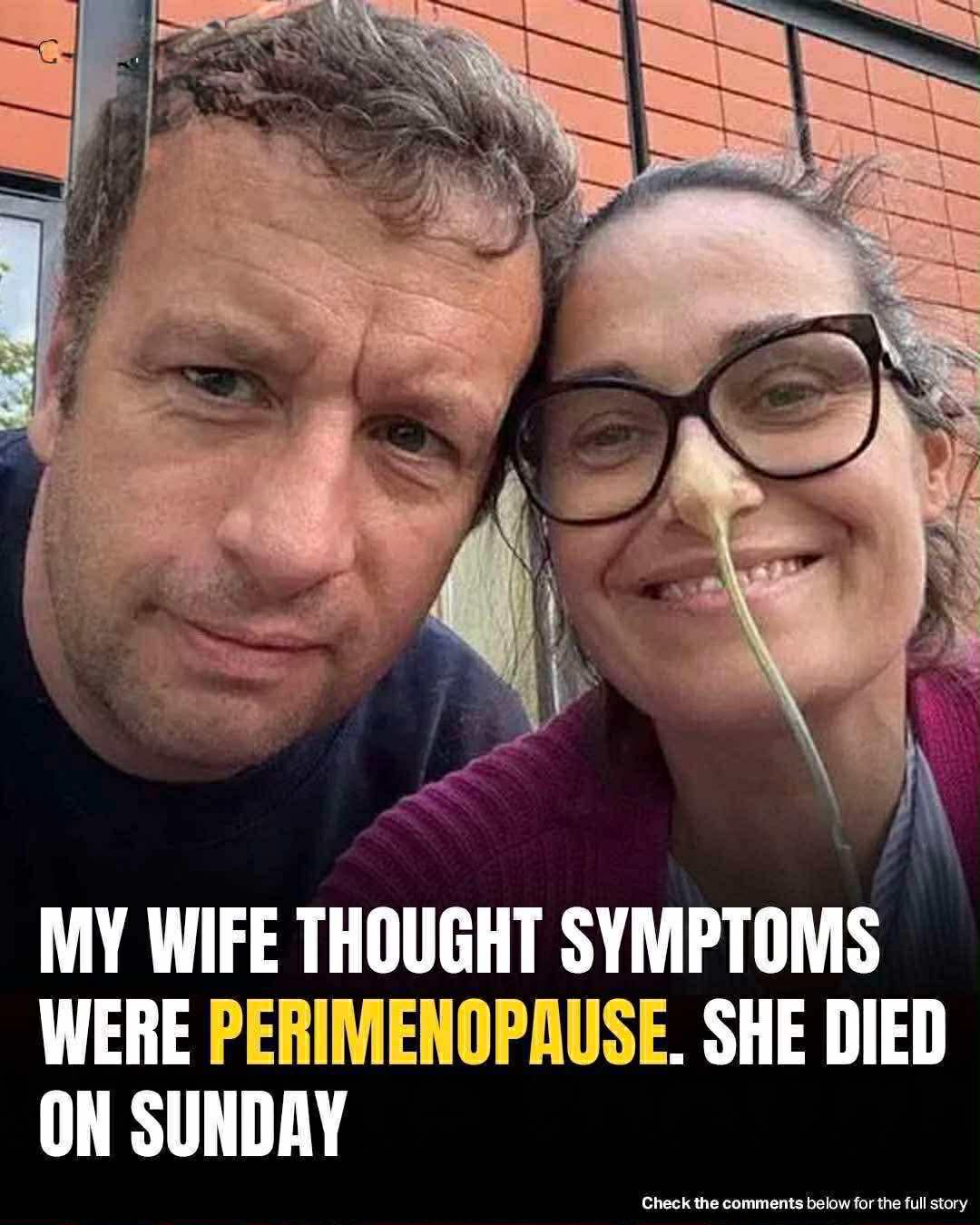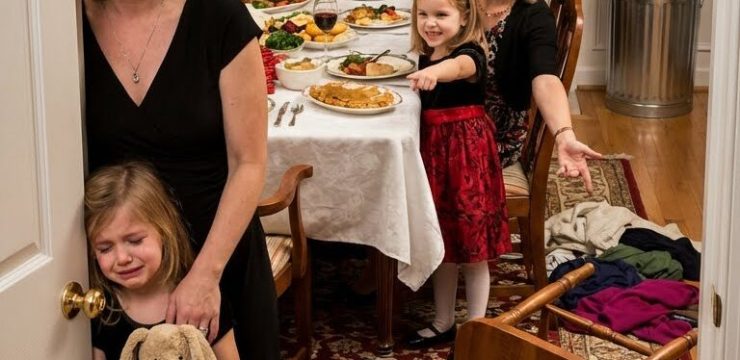Laura Dawson, a 44-year-old mother of two from London, spent months battling unexplained bloating and morning fatigue, symptoms she initially brushed off as signs of perimenopause, never imagining they were pointing to something far more serious. For a while she managed her discomfort quietly, assuming it was part of a natural life transition, until one night the pain in her abdomen became unbearable and she was rushed to the emergency department at A&E.

Doctors quickly discovered that she had an obstruction in her bowel, and she was forced to undergo emergency surgery. While the surgery itself was described as successful, the outcome of further tests changed her life forever: Dawson was diagnosed with stage three bowel cancer. Her husband, Ben Dawson, explained that the diagnosis was a crushing blow for the family, but Laura faced it with resilience. She endured six grueling months of chemotherapy, and for a brief period there was hope. Scans in August showed a clear result, and the family allowed themselves to believe the worst was behind them.
“We got one clear scan in August and it all seemed promising,” Ben recalled, describing the relief they felt. But just one month later, in September, the cancer returned aggressively and had already spread. “That was absolutely gut-wrenching,” he said, capturing the devastation of seeing their hopes crumble so quickly. Laura tried additional rounds of chemotherapy in an effort to slow the progression, but the treatments left her increasingly weak and sick. Two months before her passing, she made the difficult decision to discontinue treatment altogether, realizing the side effects were stripping away what little quality of life she had left.
Instead, she chose to focus her energy on spending time with her family and close friends, determined to live her final days surrounded by love rather than confined to a hospital bed. With the support of St Christopher’s Hospice in Sydenham, south-east London, Laura was able to spend precious time at home, cared for in a way that allowed her dignity and comfort. Ben described how the hospice team made an immeasurable difference in Laura’s final weeks, first by arranging for her to be at home with the assistance of carers and then by welcoming her into the hospice itself.
“The care Laura received at home from the carers from St Christopher’s allowed her to have her final two weeks at home in a comfortable and dignified way,” Ben explained. “Then, during the nearly three weeks she stayed at the hospice, she was so well looked after – and everyone there was so compassionate and so caring – that it made Laura’s last few days so good for her. We’re eternally grateful that such a positive experience could come from such a negative situation.”
On Sunday, June 29, Laura passed away at St Christopher’s Hospice with her husband by her side. In her final weeks, Laura shared her own reflections on what it meant to confront mortality so directly, speaking with a clarity that touched those around her. “Some of the happiest days of my life have been in the last few weeks,” she said. She acknowledged that as a society, people often shy away from discussing death, reinforcing the idea that it must always be traumatic or painful. But through her own experience, Laura discovered that facing death openly and honestly could transform the experience into something meaningful.
“By doing that, we reinforce negative ideas around death. People think death is always going to be painful and traumatic, but it doesn’t have to be,” she explained. For Laura, cancer forced her to confront the reality of mortality, something she believed we all know deep down but rarely admit. “Deep down we all know we are going to die. Cancer has forced me to acknowledge it. Since then I’ve lived more fully than I’ve ever done and that has been a gift.” Despite the devastating circumstances, Laura found peace in the love and care she received and in the simple moments she shared with her family in her final weeks.
She passed away knowing she was deeply loved and cherished, leaving behind a legacy of courage, grace, and wisdom about life and death. Her story is a powerful reminder of the importance of listening to our bodies, valuing the time we have, and recognizing that even in the shadow of terminal illness, there can be moments of profound happiness and gratitude. Laura’s journey, though heartbreaking, offers hope in the way she redefined her final days, showing that death does not have to be defined by fear but can be embraced with dignity, compassion, and love.





